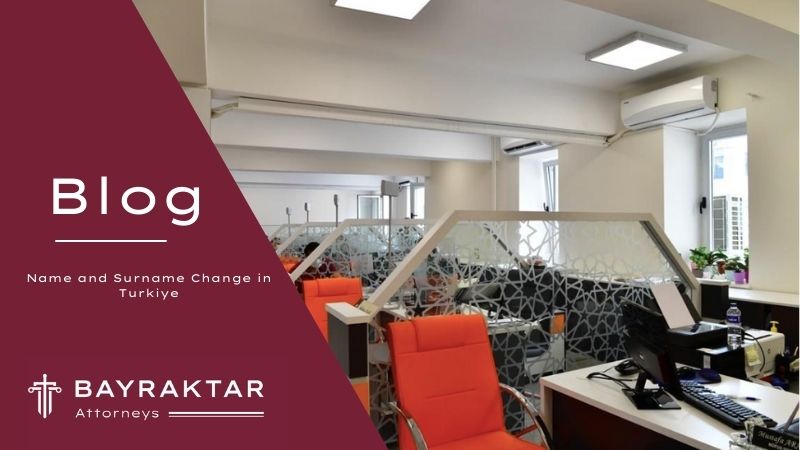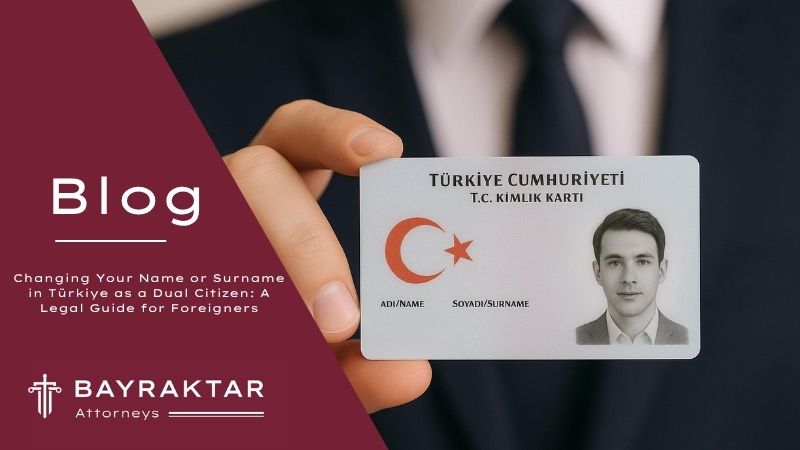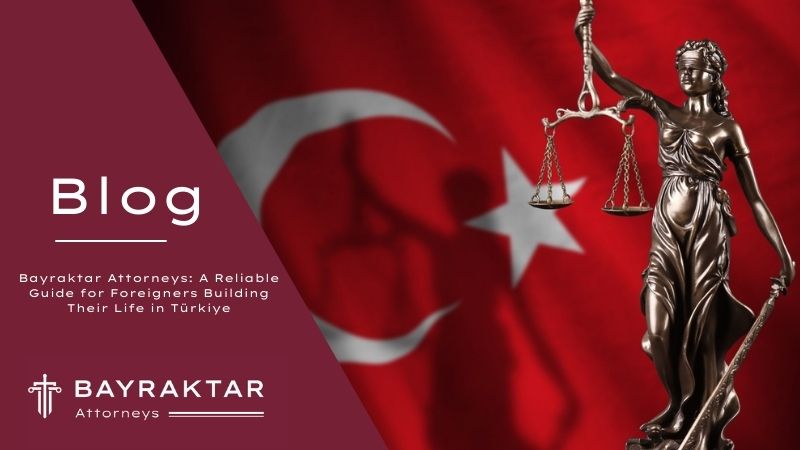
CIRCULAR
2017/3 (NVI)2017/12 (SGB)
Law No. 7039, Amending the Population Services Law and Certain Other Laws, was published in the Official Gazette on November 3, 2017, No. 30229, and entered into force.
According to the Temporary Article 8 added to Law No. 5490:
*”If a person applies in writing to the population directorate of their place of residence within two years, names and surnames that are contrary to Article 3 of the Surname Law No. 2525 dated June 21, 1934, as well as names and surnames with spelling and grammatical errors or changes in meaning due to the absence of diacritical marks, can be changed without a court decision through a resolution by the provincial or district administrative boards, on a one-time basis. The decisions of the provincial and district administrative boards are final.
If the surname of a man is changed, the surnames of his wife and children under legal age at the time of application will also be adjusted. If a woman changes her surname, the surnames of her illegitimate children under legal age will also be adjusted.”*
The following clarifications outline the principles for evaluating requests for the correction of names and surnames by provincial and district administrative boards:
I. Principles Regarding the Correction of Names and Surnames
- Definition of Name in Private Law:A name identifies a person and distinguishes them from others. Every individual has a unique personality and identity and must have a name recorded in the family registry by law. Therefore, names and/or surnames will not be corrected ex officio without a written request from the individual.
- Exclusions for Certain Categories:Requests from individuals who lost Turkish citizenship by obtaining a renunciation permit and are recorded in the Blue Card Registry are outside the scope of this law. Such requests will be rejected by the provincial and district administrative boards.
- Posthumous Name Corrections:Since the right to a name is personal, requests to change the names and/or surnames of deceased persons will be rejected by the provincial and district administrative boards.
- One-Time Change Rule:Names and/or surnames may be changed once, as per the decision of the provincial or district administrative board. These decisions are final.
- Cases Involving Convicted Individuals:As per Article 407 of the Turkish Civil Code (Law No. 4721), “Every adult sentenced to imprisonment for one year or more will be restricted.” Requests from such individuals can be evaluated by the provincial or district administrative boards if made through the public prosecutor’s office and with the written consent of their guardian.
- Requests by Detainees in Penal Institutions:Requests for name and/or surname changes submitted by detainees through the public prosecutor’s office to the population directorate of the location where they are detained will be processed.
- Requests by Persons Under Legal Guardianship:Requests from individuals restricted due to age, disability, inexperience, or severe illness will be accepted if accompanied by a finalized court decision regarding their guardianship.
- Correction of Long-Used Names or Surnames:If a name or surname has been long used in official processes (e.g., education, military service, marriage, or divorce) and differs due to clerical errors during registration, corrections will only be made upon written request. Provincial or district administrative boards may approve corrections in such cases.
- Spelling and Grammatical Errors:Requests concerning errors in spelling or the absence of diacritical marks that lead to changes in meaning will be reviewed based on guidance from the Turkish Language Institution (TDK) and relevant regulations.
- Role of Administrative Boards:Administrative boards may seek opinions from provincial or district population directors on requests to correct names or surnames that conflict with applicable laws.
- Consulting the Ministry:If administrative boards encounter uncertainties, they may request guidance from the Ministry on how to proceed.
- Documentation of Decisions:Changes in names and/or surnames will be noted in the population registry with a statement such as:“The name and/or surname was corrected from ‘…’ to ‘…’ as per the decision of the provincial/district administrative board dated … and numbered … .”
- Automatic Adjustments for Family Members:When a man changes his surname, the surnames of his spouse and children under legal age will be automatically adjusted in the system. Similarly, the first name of children will be adjusted if the parent’s name is corrected. Additional decisions by administrative boards are unnecessary.
Practical Examples:
- Change from “GÜZEL” to “TÜZEL”:If a surname recorded as “GÜZEL” in the closed registry is recorded as “TÜZEL” in the open registry, and the individual prefers “TÜZEL,” the administrative board may approve the change, and the correction will be reflected accordingly.
- Correction of a Clerical Error:If a surname is recorded as “ÇEVİK” instead of “ÇELİK” due to an error and has been used for years, the administrative board may approve the continued use of “ÇEVİK,” noting the decision in the population registry.
- Correction of a Missing Letter:For names like “Memet” instead of “Mehmet,” administrative boards may approve corrections upon request.
- Addition of Missing Diacritical Marks:Names like “Ali” instead of “Alı” or “İsa” instead of “Isa” can be corrected upon request, with the decision noted in the registry.
Further examples and procedures are detailed in the full directive.
Need legal support for your family matters in Turkey? Explore our Family Law services and let our experienced attorneys guide you with care and confidence.







